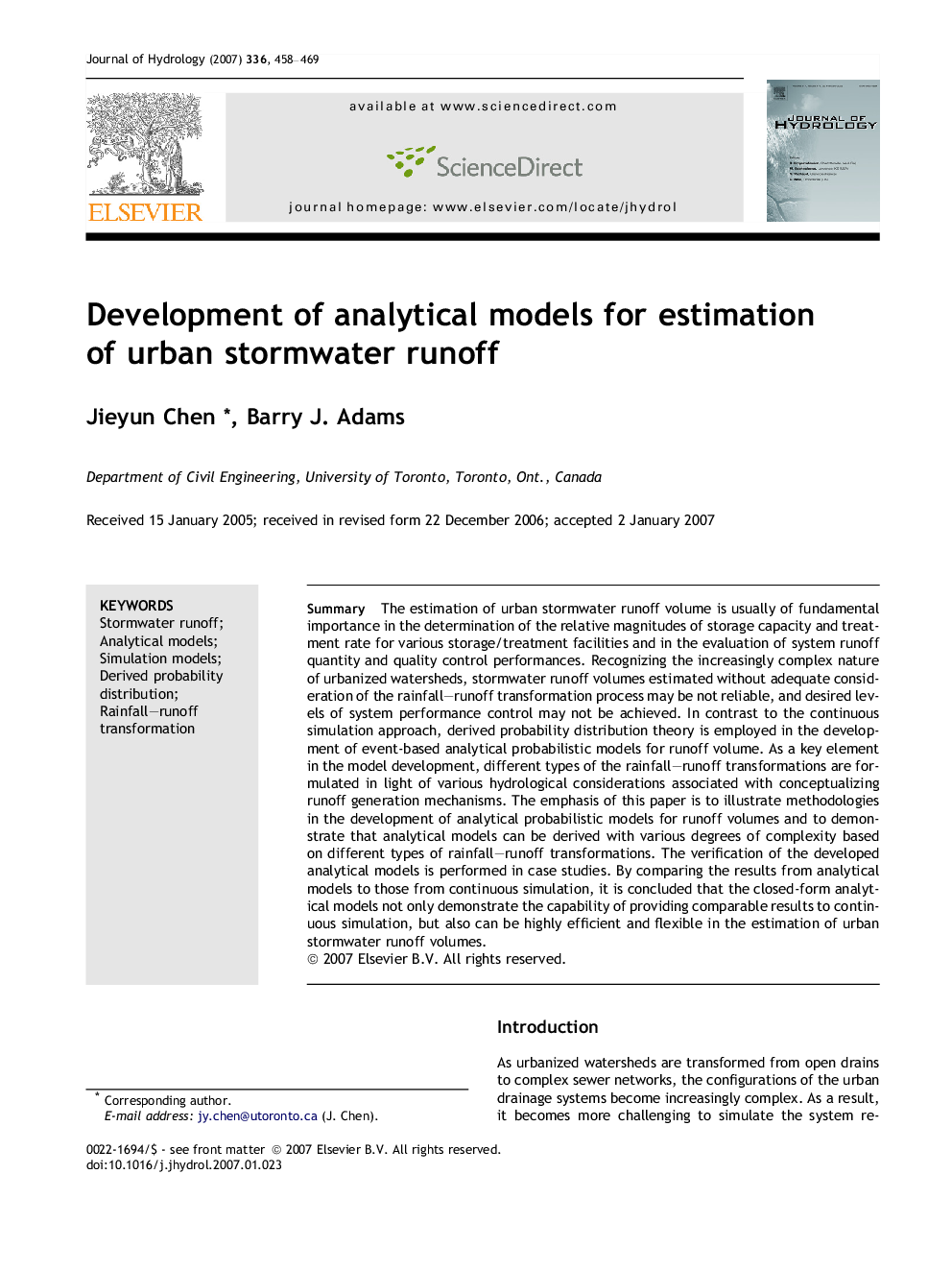| Article ID | Journal | Published Year | Pages | File Type |
|---|---|---|---|---|
| 4580070 | Journal of Hydrology | 2007 | 12 Pages |
SummaryThe estimation of urban stormwater runoff volume is usually of fundamental importance in the determination of the relative magnitudes of storage capacity and treatment rate for various storage/treatment facilities and in the evaluation of system runoff quantity and quality control performances. Recognizing the increasingly complex nature of urbanized watersheds, stormwater runoff volumes estimated without adequate consideration of the rainfall–runoff transformation process may be not reliable, and desired levels of system performance control may not be achieved. In contrast to the continuous simulation approach, derived probability distribution theory is employed in the development of event-based analytical probabilistic models for runoff volume. As a key element in the model development, different types of the rainfall–runoff transformations are formulated in light of various hydrological considerations associated with conceptualizing runoff generation mechanisms. The emphasis of this paper is to illustrate methodologies in the development of analytical probabilistic models for runoff volumes and to demonstrate that analytical models can be derived with various degrees of complexity based on different types of rainfall–runoff transformations. The verification of the developed analytical models is performed in case studies. By comparing the results from analytical models to those from continuous simulation, it is concluded that the closed-form analytical models not only demonstrate the capability of providing comparable results to continuous simulation, but also can be highly efficient and flexible in the estimation of urban stormwater runoff volumes.
